1. The Importance of Reverence in Worship

Growing up, many grandparents were taught to approach church with a deep sense of reverence. It wasn’t just about attending services; it was about understanding the sanctity of the space. Children were often reminded to sit still, listen attentively, and reflect on the messages being shared, rather than fidgeting or chatting. The practice of quiet contemplation was a cornerstone of the experience.
Today, it’s more common for children to have a more relaxed approach to church, often accompanied by digital distractions or more casual services. While there’s still an emphasis on respect, the level of solemnity and expectation of focus has changed dramatically. For grandparents, the quiet, respectful atmosphere was just as important as the sermon itself.
2. The Bible as a Living Guide

In the past, many grandparents were taught that the Bible wasn’t just a book—it was a guide for how to live every aspect of their life. The teachings weren’t just stories; they were lessons that applied to their daily decisions. Whether it was choosing right from wrong or navigating family dynamics, the Bible was seen as the ultimate compass.
Today, while many still value scripture, the emphasis on using it as a direct, practical guide for everyday life may have waned. Children today might hear Bible stories in more abstract terms, focusing more on moral lessons without the same connection to real-world applications. For grandparents, however, the Bible provided clear, actionable direction.
3. The Power of Personal Prayer

In church, grandparents often learned the importance of personal, private prayer. It wasn’t just about communal worship—it was about fostering a deep, individual connection with God. They were encouraged to pray daily, in their own words, reflecting on their thoughts, fears, and hopes. This personal prayer time was sacred, offering a moment of solitude and reflection outside of the structured services.
Today, prayer in church might be more communal and guided, with many services focusing on group prayers or structured petitions. While private prayer still exists, it’s not always emphasized to the same extent in children’s teachings. For grandparents, though, the practice of personal prayer was a vital way to strengthen their faith on a one-on-one level.
4. The Concept of Sabbath Rest

A day of rest was a cornerstone of church teaching for many grandparents. The Sabbath wasn’t just a day to relax—it was a day to stop, reflect, and connect with God. Work, chores, and distractions were meant to be set aside to honor the sacredness of the day. Sunday was a time for family, reflection, and spiritual renewal, with little emphasis on activities beyond worship.
Today, the concept of Sabbath rest has shifted. With more families juggling busy schedules and work commitments, Sundays often become just another day to catch up. The sacredness of the Sabbath as a time for uninterrupted rest and reflection isn’t as firmly ingrained in today’s youth. For grandparents, though, honoring the Sabbath was a vital part of their faith tradition.
5. The Value of Singing Hymns
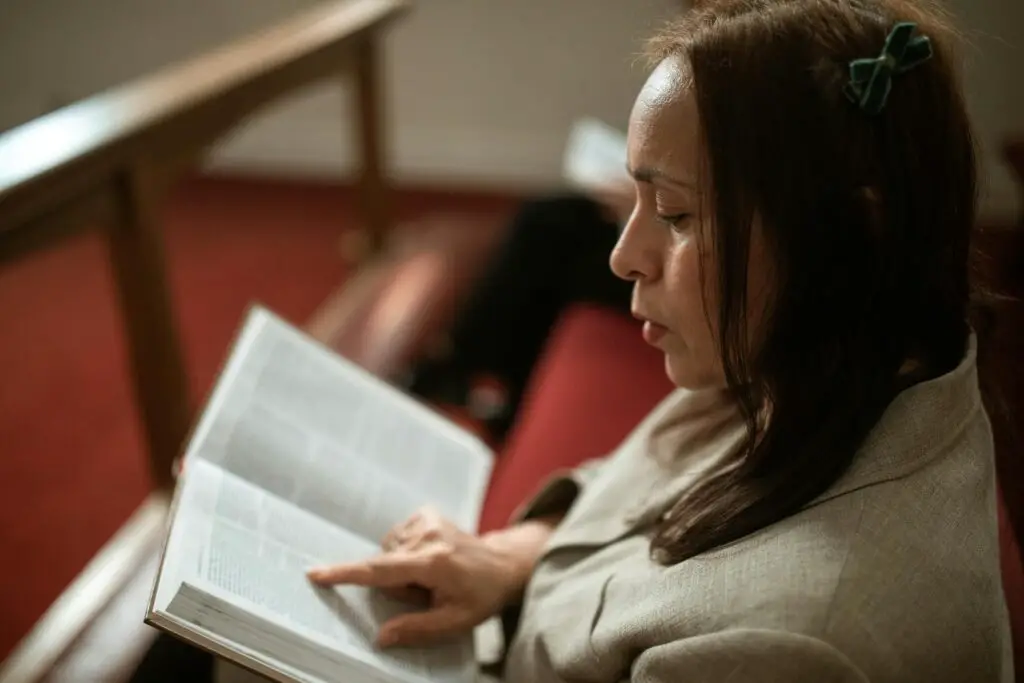
For many grandparents, singing hymns was a deeply spiritual activity that connected them to their faith and to the community around them. Hymns were often taught by heart and sung in unison, creating a sense of unity and purpose. The lyrics were not only beautiful but often carried profound theological messages, shaping their understanding of God and their role in His plan.
In contrast, children today are more likely to hear contemporary worship songs that focus more on emotional connection than theological depth. Hymnals, once a staple in every pew, are now sometimes replaced with projections or screens. While contemporary music still serves a purpose, the reverence and deeper teaching behind traditional hymns may be less emphasized.
6. The Role of the Church as a Community
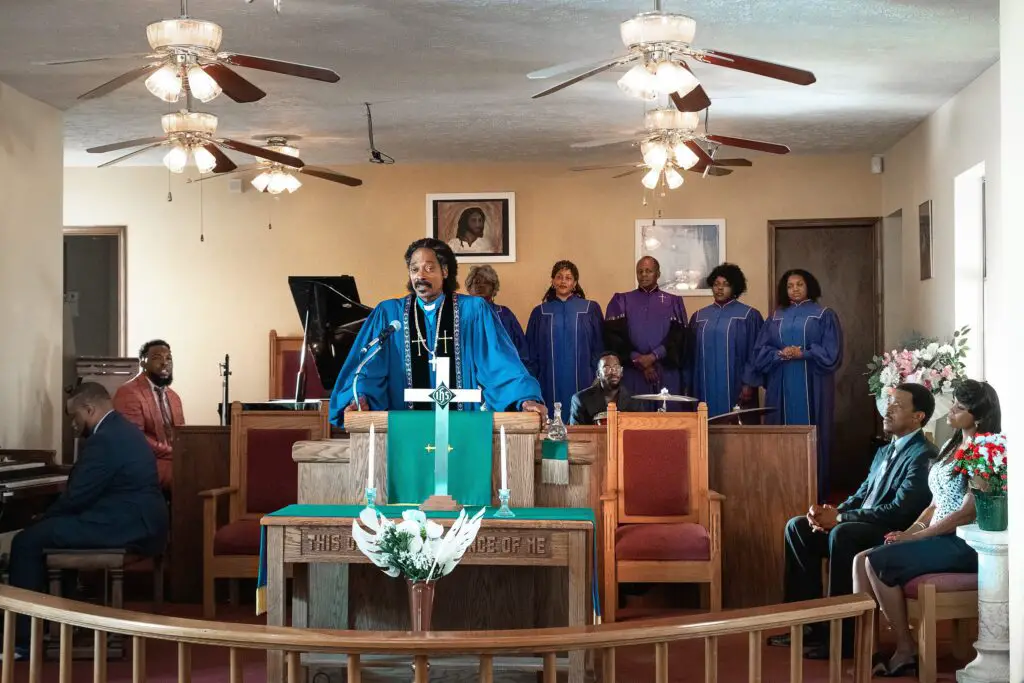
Church for many grandparents wasn’t just a building; it was a community center. It was where they made lifelong friendships, supported one another through hardship, and raised their children in a collective environment. The church was a place where everyone knew each other by name, and its doors were always open for help, encouragement, or fellowship.
Today, many churches have become more transient, with people attending large services where they may not personally connect with the people sitting around them. While churches still offer community, the deep bonds that come from small, intimate congregations may not be as prevalent. For grandparents, the church was the heart of a network that supported them both spiritually and practically.
7. The Sense of Discipline and Duty
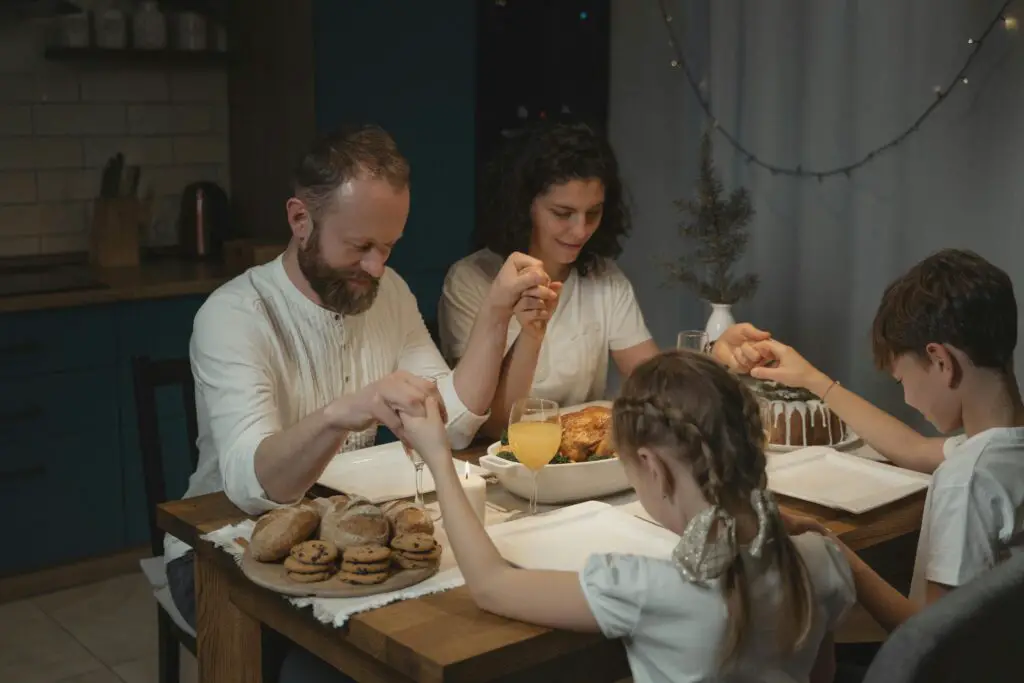
In the past, churchgoers, especially children, were taught that being part of a church was a matter of duty as much as a matter of faith. Attending services, participating in activities, and upholding the teachings of the church were not optional—they were expected. There was a strong sense of discipline surrounding church attendance and participation, as it was seen as an integral part of a well-rounded life.
In today’s world, church attendance may feel less obligatory. While many still attend services, the sense of duty or discipline attached to it has shifted, with some families treating it as more of a personal choice rather than a communal responsibility. For grandparents, church was a non-negotiable part of their lives, woven into their weekly routine as a symbol of their commitment to their faith.
8. The Importance of Family Prayer

For many grandparents, prayer was a family affair. Before meals, during difficult times, or simply at the start of the day, family prayer was a time for everyone to gather and offer thanks or seek guidance. These moments often strengthened family bonds and served as a reminder of their shared faith. Children were encouraged to join in, creating a sense of unity in both the household and the faith community.
Today, family prayer has become less common in many households. While some still practice it, others may not make time for it or choose to pray individually. For grandparents, though, the ritual of praying together as a family was not only spiritual but also a bonding experience that grounded their daily lives.
9. Respect for Authority
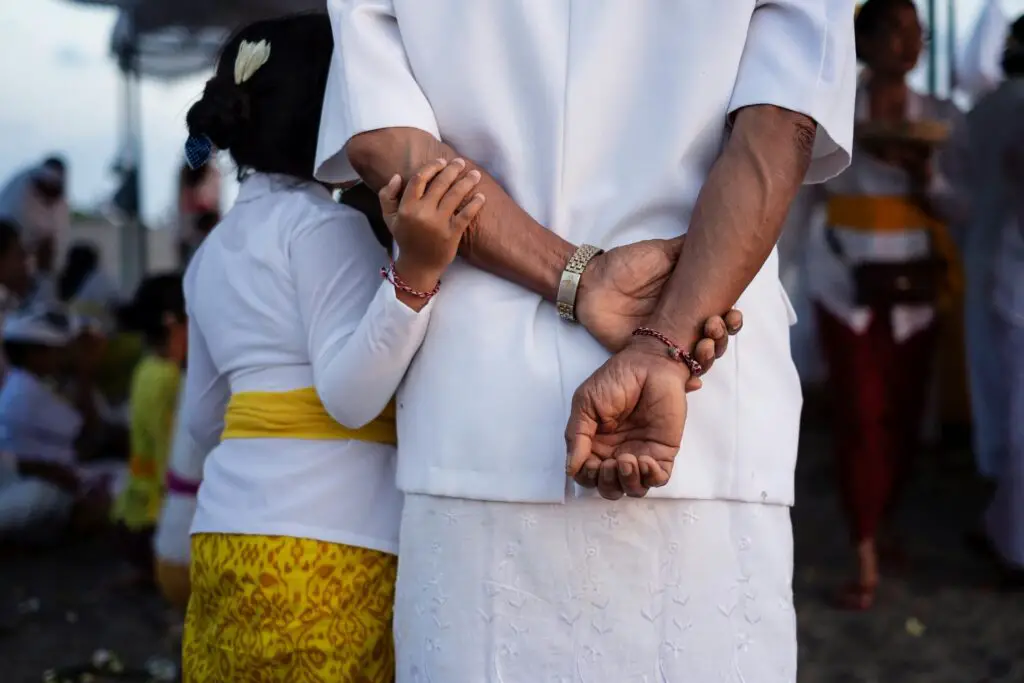
One key lesson grandparents often learned in church was the importance of respecting authority figures, whether it was the minister, the elders, or their parents. Church leaders were seen as the spiritual guides, and children were taught to listen to and follow their teachings without question. This respect for authority extended beyond the church walls, influencing how they interacted with others in society.
In contrast, today’s children are often taught to question authority more openly and assert their own perspectives. While critical thinking is important, the level of deference to those in positions of authority may not be as emphasized. For grandparents, however, the respect for authority was a fundamental part of both their church experience and their upbringing.
10. The Importance of Tithing

Grandparents often learned about the importance of giving back through tithing—donating a portion of their income to the church. Tithing wasn’t just seen as a financial responsibility; it was a spiritual act that demonstrated gratitude for God’s blessings. Many grandparents recall regular talks about how giving to the church supported the work of the ministry and helped those in need.
Today, the concept of tithing is still present in many churches, but it may not be as strongly emphasized or practiced by younger generations. With the rise of online giving and a more flexible approach to donations, tithing might not hold the same central place in church teachings. For grandparents, however, tithing was an act of faith that went hand in hand with their spiritual lives.
11. The Concept of Salvation as a Journey
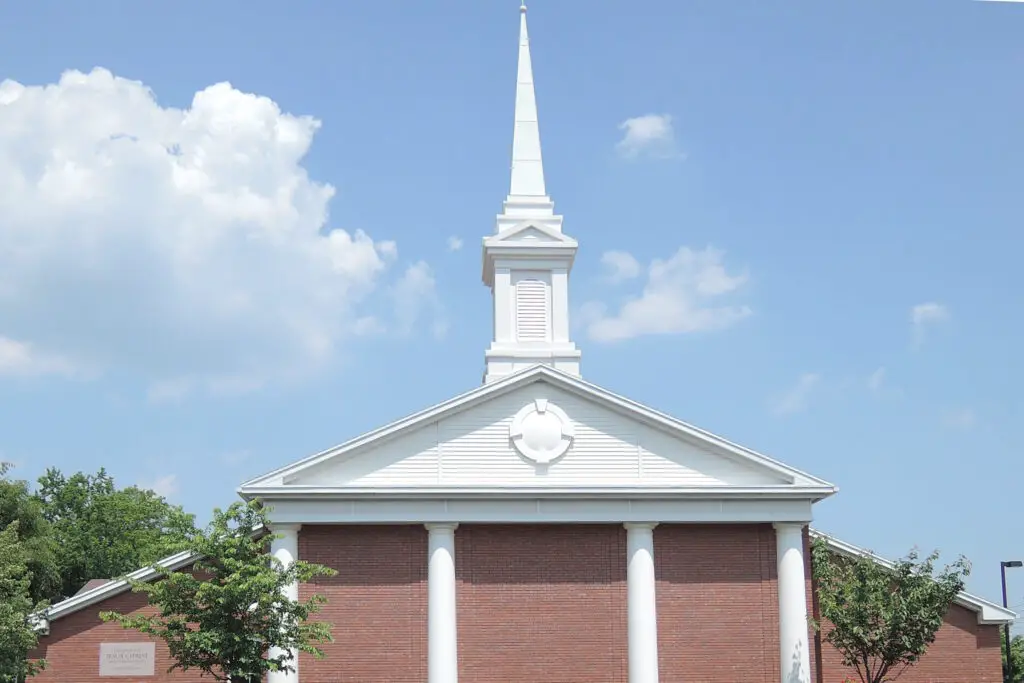
For grandparents, salvation was often seen as a lifelong journey of growth and personal transformation. The idea that becoming a better person and deepening your relationship with God was an ongoing process was instilled early on. It wasn’t about a single moment of salvation but about constantly striving to live in accordance with God’s will and becoming more Christlike.
In today’s world, many churches focus more on the instantaneous aspect of salvation, emphasizing a moment of conversion or a personal commitment. While this is an important part of the faith, the broader idea of salvation as a continuous journey may not be as prevalent. For grandparents, this journey was central to their spiritual outlook, deeply woven into their everyday lives.
12. Respecting Church Traditions

Many grandparents were taught to appreciate and uphold church traditions, whether it was observing holidays like Easter and Christmas with special services or participating in rituals like baptisms and communion. These traditions were seen as vital links to the past, connecting the present congregation to generations of believers before them. The rituals were sacred and helped reinforce the spiritual significance of their faith.
Today, some of these church traditions have become more flexible or even abandoned, especially as churches modernize their services. Younger generations may feel less tied to these traditions, seeing them as outdated or irrelevant. For grandparents, however, these customs were an essential part of their faith, providing continuity and a sense of belonging to something larger than themselves.
13. The Role of Fellowship Beyond Sunday Service

For many grandparents, church was more than a Sunday service—it was a place where friendships were made, and support was offered. Fellowship groups, Bible studies, and social events helped build a sense of community that extended throughout the week. This sense of belonging to a close-knit group often provided emotional and practical support, whether it was through shared meals or prayer circles.
Today, while some churches still encourage fellowship, the hustle and bustle of modern life often leaves less time for these gatherings. Many younger people may attend services but not necessarily engage in other church activities. For grandparents, the fellowship aspect was just as important as the worship, offering a deeper connection to the church family.
14. The Call to Serve Others

One of the key teachings in church for many grandparents was the call to serve others. Whether it was volunteering at the church, helping a neighbor, or donating to charitable causes, serving others was a natural extension of their faith. They were taught that helping those in need was not only a moral duty but a way to live out Christ’s teachings.
In today’s world, while service is still emphasized in many churches, it may not carry the same sense of duty. Many younger people might focus on personal spiritual growth or activism outside of the church context. For grandparents, however, serving others was seen as an essential part of their Christian walk, deeply embedded in their everyday lives.
15. The Importance of Sunday School

Sunday School was a staple for many grandparents growing up. It wasn’t just a fun way to pass the time while the adults attended the main service; it was a crucial part of their spiritual education. In Sunday School, children learned Bible stories, memorized verses, and participated in activities that helped reinforce their faith. It was a time for children to bond with peers and deepen their understanding of their beliefs.
Today, while Sunday School still exists in many churches, it’s not always as central to a child’s spiritual development. Some children may only attend church services, missing out on the focused teaching and fun of Sunday School. For grandparents, Sunday School was often where they learned foundational aspects of their faith in a more structured, child-friendly way.
16. The Importance of Modesty

For many grandparents, modesty was emphasized not only in their dress but also in their behavior and speech. Church teachings often included the idea that modesty was an important virtue to practice in all areas of life. This extended to how one spoke, acted, and presented themselves to the world, with the belief that modesty reflected a humble, respectful heart.
Today, the concept of modesty may be more fluid, especially in a world that embraces self-expression and individualism. Many children today may not receive the same teachings about modesty in both physical appearance and behavior. For grandparents, however, modesty was an essential part of how they were taught to live their lives in accordance with God’s will.
17. The Importance of Fasting and Sacrifice

Grandparents often learned the value of fasting and sacrifice as a way to deepen their spiritual connection. Whether it was fasting during Lent or giving up something they loved as an act of self-discipline, these sacrifices were seen as ways to draw closer to God. Fasting was not only a physical discipline but a spiritual one, encouraging reflection and humility.
Today, fasting might not be as emphasized or practiced regularly. Many younger people may not have the same understanding of fasting’s spiritual significance, with some viewing it as an outdated or extreme practice. For grandparents, however, fasting was a meaningful way to reflect on their faith and to grow spiritually through sacrifice.
